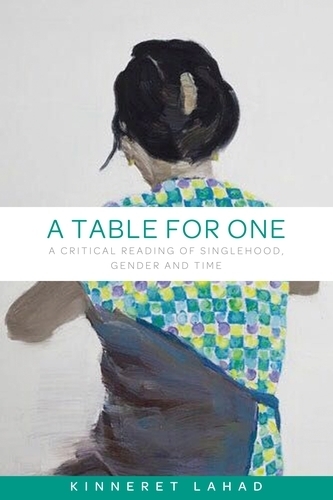
A Table for One: A Critical Reading of Singlehood, Gender and Time
(Paperback)
Available Formats
Publishing Details
A Table for One: A Critical Reading of Singlehood, Gender and Time
By (Author) Kinneret Lahad
Manchester University Press
Manchester University Press
13th September 2019
United Kingdom
Classifications
Tertiary Education
306.8153
Physical Properties
Paperback
168
Width 156mm, Height 234mm
Description
Table for one: A critical reading of singlehood, gender and time is the first book to consider the profound relationship between singlehood and time. Drawing on a wide range of cultural resources - including web columns, blogs, advice columns, popular cliches, advertisements and references from television and cinema, the author challenges the conventional meaning-making processes of singlehood and time. Lahad's analysis gives us the opportunity to explore and theorize singlehood through varied temporal concepts such as waiting, wasting, timeout, age, the life course, linearity and commodification of time. This unique analytical approach enables the fresh consideration of some of our dominant perceptions about collective clocks, schedules, time tables and the temporal organization of social life in general. -- .
Reviews
Kinneret Lahad has provided a fascinating discussion on gender, singlehood, and social time. Challenged by temporal metaphors such as "biological clock" or "missing the train", single , urban, upper and middle class women have been portrayed as outliers of heteronormative social norms, where being married is equalled to being "normal." Using discourses from popular culture, everyday talk, and new media technologies in the Israeli context, Lahad dissects and challenges the long standing linear life course studies in sociology with a fresh, interesting and innovative perspective on the feminist reading of singlehood. It is a ground-breaking work on the sociology of gender and the sociology of time.
Gkce Yurdakul, Humboldt University, co-author of The Headscarf Debates: Conflicts of National Belonging
From the outset, the reader is drawn into a highly readable and theoretically engaging study of "long-term" single women. Drawing upon a wide range of sources, the author provides a detailed examination of a triple discrimination, in terms of age, gender and single status. Focussing upon but not confined to modern Israel, the study takes us through the numerous sites and temporal contexts where these discriminations occur. However, this is not just a study of a particular gendered status but it is also a major contribution to the understanding of everyday time; waiting time, time passing, commodified time. In her final chapter the author opens up possibilities of alternative definitions and practices of singlehood.
David Morgan, University of Manchester
A welcome contribution to the sociology of time, highlighting the implicit norms and expectations underlying such notions as being on time or late at the level of the life-course. Furthermore, the book provides a foundation for a sociology of singlehood, treating it as a major phenomenon in its own right rather than just as a transitional stage in anticipation of marriage, recognizing that remaining single is often a permanent rather than merely temporary state of being. The asymmetry between womens lack of need to account for their decision to get married and need to justify why they have thus far not done so is the books most evocative finding.
Eviatar Zerubavel, Board of Governors and Distinguished Professor of Sociology at Rutgers University
Author Bio
Kinneret Lahad is Senior Lecturer in the NCJW Women and Gender Studies Program of Tel-Aviv University, Israel
